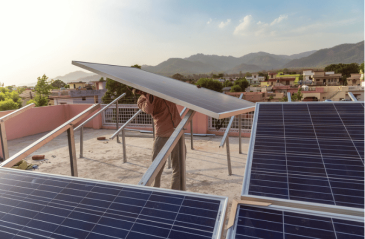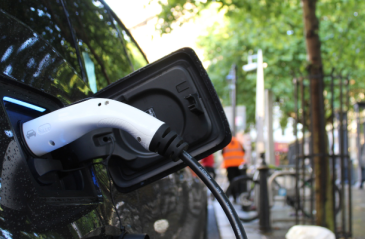
The power of storytelling in climate leadership

Energy topped the priority list for Mexico's recently-elected president, Enrique Peña
Share articlePresident Peña's decision to liberalise the energy sector was not without controversy
Share articleThe reforms will entail changes to improve efficiency and profitability
Share articleWe put our vision for government into practice through learning partner projects that align with our values and help reimagine government so that it works for everyone.
I was eight years old when I first learned about Mexico's rich energy supplies. Sitting in public school, my classmates and I were taught about the country's abundant natural resources - petroleum, shale, natural gas - and how these belonged not to speculators or big business but to ordinary Mexicans.
The importance of such resources to the national psyche went far beyond the classroom, however. Every year on 18 March we celebrated the fact that our oil industry had, since 1938, been under national control, run for the benefit of all Mexicans and not just a privileged few. At least, so went the theory.
Unfortunately, the more recent reality failed to chime with such lofty ideals. A decade-long slump in oil production and high electricity prices told a story of opportunities missed, mistakes made and potential untapped. Small wonder then that energy topped the priority list for recently-elected president, Enrique Peña, superseding other areas such as telecoms, banking and education.
President Peña came to power in 2012. After a 12-year spell on the sidelines, he led his Institutional Revolutionary Party (PRI) back into office on a platform that promised ‘no going back to the past' and the vision of a ‘modern, democratic, transparent' presidency.
Securing the country's energy supplies was in the president's sights from day one. While Mexico was the third largest oil producer in the Americas, Petróleos Mexicanos, or Pemex, the national energy company, was suffering from declining productivity, massive pension liabilities and insufficient infrastructure. For example, despite being one third the size, Texas has seven times as many natural gas pipelines. And with industrial electricity prices also rocketing (while costs in the US were nearly 80% lower) it was clear that something had to be done. For President Peña, it was time to open the doors to competition.
The decision to liberalise the energy sector was not without controversy, however. Although high energy prices and fluctuating supplies were vivid reminders of the sector's problems, energy's patriotic grip on the populace remained intense. President Peña therefore faced a tough task to get his policy proposals onto the statute book. So how did he do it?
Firstly, he understood the power of momentum. Not resting on any laurels, Peña hit the ground running after his election and sought to push through reforms when he was at his most powerful, by maximising his electoral mandate. Secondly, he took full account of the emotional charge of this issue. Framing the changes as a continuation of the reforms from 1938, similar legislative language was deployed in order to break down parliamentary resistance. Thirdly, he was willing to compromise. While legislative trade-offs were far from flawless, cross-party compromises helped bridge the partisan divide.
And looking beyond the legislative chamber, the fact that the energy reforms were given such precedence also played out to the president's advantage. The previous administration had prioritised its ‘war on crime' to such an extent that it had given the impression that little else mattered. Of course, addressing crime remains a key priority, but placing greater emphasis on economic reforms has injected a much-needed shot of positivity into the national discourse. It has boosted morale, strengthened national pride and persuaded citizens that the country is heading towards a more prosperous future.
The new energy system opens up oil, gas and electricity to foreign investment. Unfortunately, the first round of auctions on July 15 failed to achieve its objectives. Only two of 14 blocks were sold, with policymakers citing low oil prices as the principal reason for this low demand. Certainly, there is little doubt that we have been hit hard by the global collapse of oil prices - a third of the Mexican government's income comes from oil - and the reforms, many of which remain in draft mode, will also generate some uncertainty, The devil is always in the detail when it comes to substantial change programmes.
The longer-term outlook, though, remains positive. The reforms will entail substantial changes to improve the efficiency and profitability of the country's national energy companies. Both these shifts are creating a need for new capital, expertise, and partnerships which should, in turn, help reignite rapid economic growth. Indeed, the government believes that the reform package will add two percentage points to economic growth. And importantly, the benefits are also starting to percolate through to ordinary Mexicans - the cost of electricity has begun to fall, for example, and new job opportunities will also start to ricochet through the energy and non-energy sectors of the economy.
When oil prices pick up, Mexico is well placed to benefit - thanks to its newfound position in the global energy landscape as a genuinely competitive and attractive investment destination. The priority now is to ensure that that the reforms evolve into a force for good for all of Mexico - citizens and business alike. Stay tuned.
Read The promise of Mexico's energy reforms at BCG Perspectives











